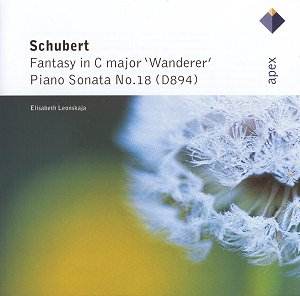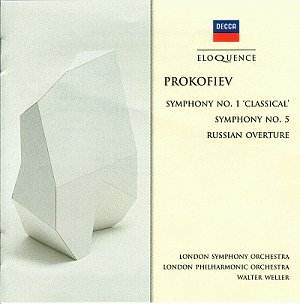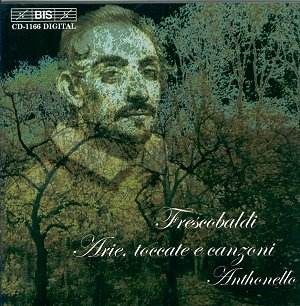 Composer: Franz Schubert
Composer: Franz Schubert
Works: Fantasy in C, D760, ‘Wanderer’; Piano Sonata No. 18 in G, D894
Performers: Elisabeth Leonskaja (piano)
Recording: Recorded in Teldec Studio, Berlin in November 1988. [DDD]
Label: Warner Apex 0927 40831-2
Franz Schubert’s piano works, particularly the Fantasy in C, D760, and Piano Sonata No. 18 in G, D894, encapsulate a profound emotional depth and lyrical beauty that have captivated pianists and audiences alike. Composed during the early 19th century, these pieces reflect Schubert’s transitional style, bridging the Classical and Romantic eras. The Fantasy, often referred to as the “Wanderer” due to its thematic material, is a masterclass in thematic transformation and emotional expressiveness. The G major Sonata, D894, showcases Schubert’s gift for melody and intricate structure, demanding both technical prowess and interpretative insight from the performer.
Elisabeth Leonskaja’s interpretation, recorded over three decades ago, displays her intrinsic musicality, yet it oscillates between moments of insightful interpretation and a more pedestrian execution that fails to fully illuminate Schubert’s complexities. Her chording in both works is meticulously articulated, showing a commendable attention to voice-leading that often brings out the counterpoint inherent in Schubert’s writing. However, this precision occasionally comes at the expense of emotional depth. For instance, in the transition to the Adagio of the “Wanderer,” the opening chords lack the gravitas that Schubert’s music demands, failing to convey the mystical qualities that linger just beneath the surface.
The technical challenges posed by the G major Sonata, particularly in the extended first movement, reveal Leonskaja’s limitations in sustaining a transcendent calm. The marking “Molto moderato e cantabile” suggests a lyrical flow that is crucial to the movement’s character, yet her interpretation feels somewhat leaden at times. While she achieves passages of genuine Schubertian simplicity, particularly in the finale, the overall tonal variety is insufficient to maintain sustained interest. A comparison with Maurizio Pollini’s interpretations, which capture both the lyrical and structural elements with greater finesse, underscores the shortcomings in Leonskaja’s approach. Pollini’s recordings, found in the Deutsche Grammophon catalog, offer a more nuanced understanding of Schubert’s emotional landscape, particularly in the way he navigates the delicate shifts in tempo and mood.
The recording quality, managed by Eberhard Sengpiel, presents the piano with a somewhat harsh timbre, which detracts from the warmth typically associated with Schubert’s music. While the engineering is competent, it fails to enhance the intimate qualities of the performance. This aspect becomes particularly glaring when juxtaposed with the more resonant and textured recordings of Schubert’s works by other pianists, where the interplay between instrument and space can be felt more acutely.
While this disc possesses redeeming qualities, such as careful attention to detail and moments of clarity, the overall execution does not rise to the level of Schubert’s genius. The lack of a deeper emotional connection and the stark engineering choices ultimately render this recording less recommendable. Warner’s presentation is minimalistic, offering little in the way of contextual insight beyond the basic recording details, further failing to support the listener’s journey through Schubert’s rich tapestry of sound. A search for interpretations that truly resonate with the ethereal qualities of Schubert’s piano oeuvre will lead one elsewhere.



